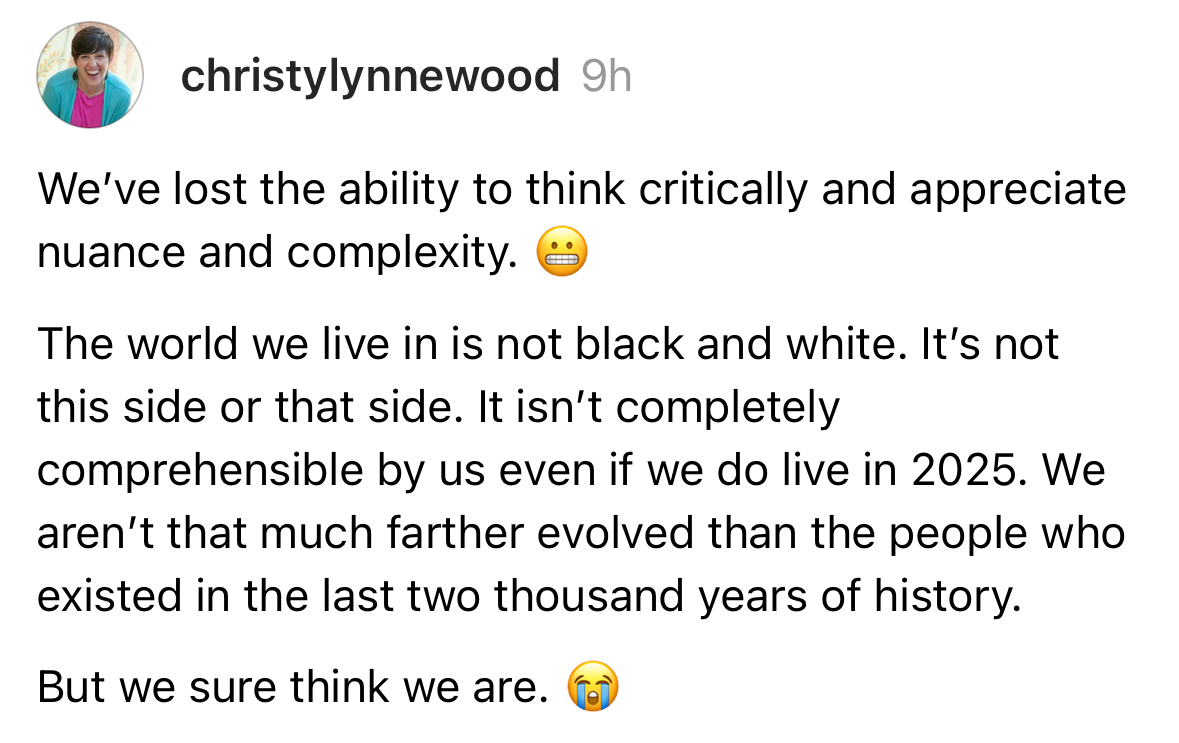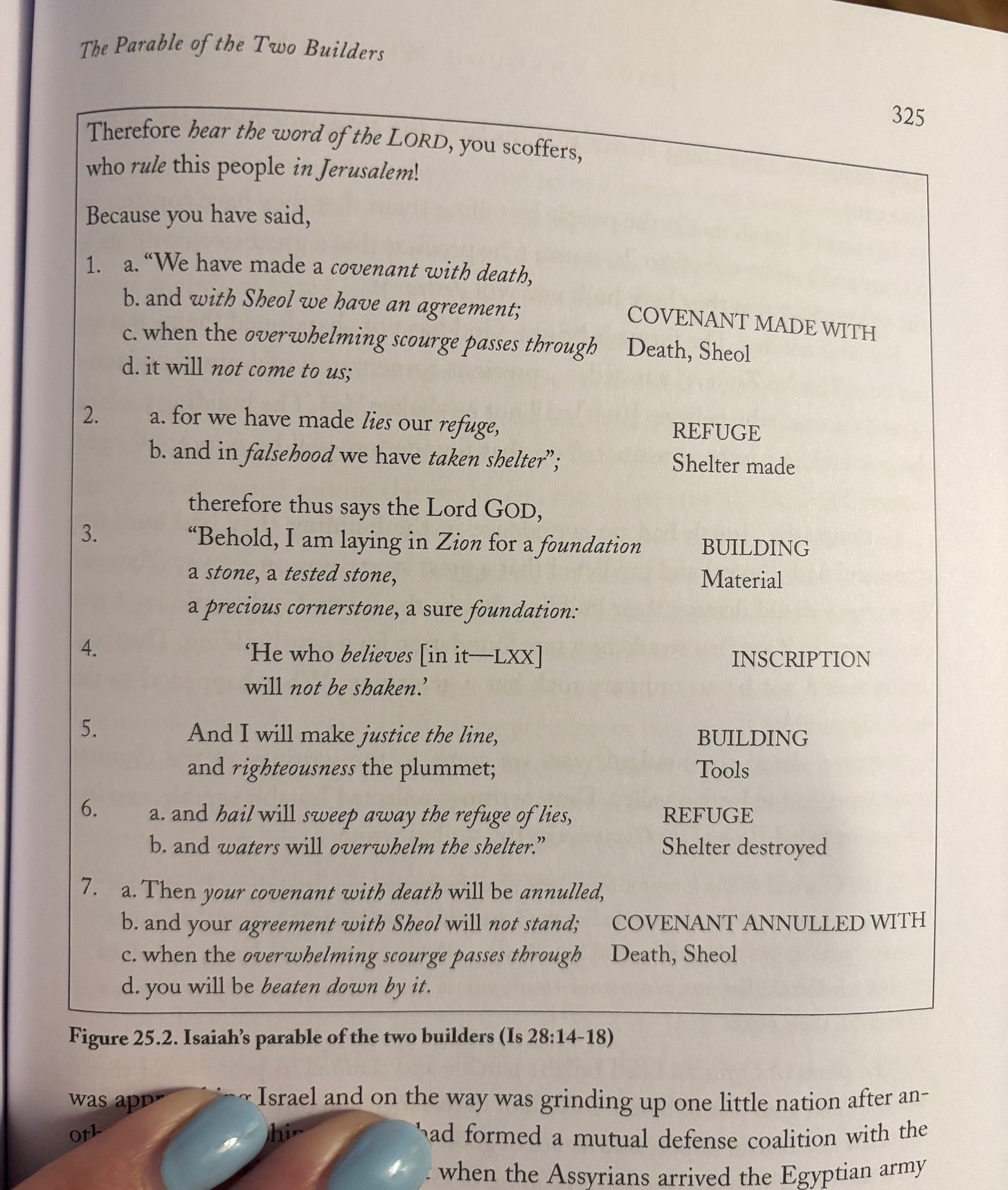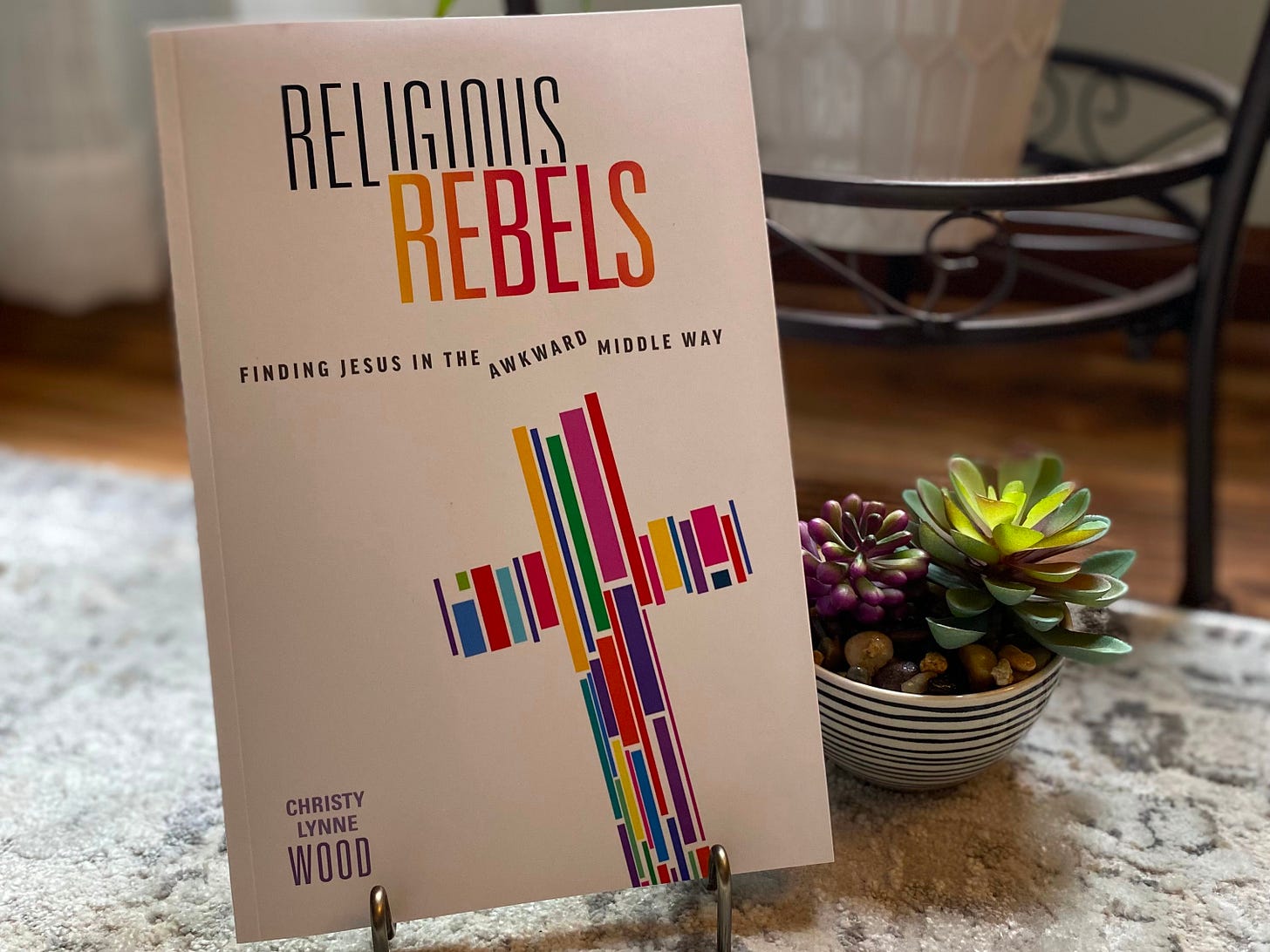“Never let us imagine that we know enough and need no teaching, or wise enough and need no correction, or talented enough to need no grace, or humble enough to need no repentance, devoted enough to need no quickening, or have strength sufficient without thy spirit.”
A prayer by Kenneth E. Bailey
I don’t really want to be the prophetic voice that this post feels like it is. Prophets get misunderstood; they are hated and stoned. I’m not writing this for a reaction. These words are just burning in my heart and reluctantly I’m obeying. I started the post yesterday and woke up early to revamp it after praying throughout the night. Politics is a touchy subject—especially these days—and I rarely get involved with my writing. The burden of my heart is that people would know the real Jesus. But today those topics are mixing and this post is the result.
American politics is chaos, and it’s totally frustrating to me right now for many reasons. I’m upset with the radical acceptance of Christian Nationalism, dominionism, and the seven mountain mandate by many church-people who it feels like should know better. I’m frustrated by the excuses that are being made. I hate that people who claim to follow Jesus also believe that we can use power to force the world to follow our idea of morality. Outward behavioral change does not make someone transformed by a reconnection to God.

But I’m also disturbed by the fear and frenzy that I feel from Christians who are buying into the chaos that’s being spread. Social media is not fun right now. I don’t like the polarization and assumptions. I’m irritated with our two-party system. If I don’t agree with you, then I must be one of them. Or if I don’t feel the same way they do, I must be one of you. We can do better!
I wrote this on Threads the other day:
I’m just gonna say it. Empire is gonna empire.
I don’t know why this surprises us so much. Power hungry people love gathering power. Look at corporate corruption, pastors caught in scandals, scammers on social media, church history, all the various conquering kings and dictators, and the stories from ancient Israel in Scripture.
Like I said in my above Threads post, we aren’t that much further evolved than all of the other people in the past two thousand years. But we sure think we are. The same power-obsessed human corruption that we’ve seen over and over again throughout history is alive and well in 2025 on every side.
I am not trying to belittle or legitimize anything. But I am concerned with the amount of energy and emotion that I am seeing people putting into reacting to American politics right now. I don’t think it’s sustainable or healthy.

Here’s another truth bomb that I hesitate to share: our social media posts don’t actually change anything. The only thing they do is rile us up—us and everyone who reads them. People who disagree won’t care or change their minds, and the people who do agree already know.
More truth: believers have been living in the shadows of empire for thousands of years. I know that this current one feels particularly difficult because of the supposed Christian element, but freaking ourselves out and frantically fighting back isn’t going to help. Does our emotional dysregulation actually do anything? Besides making us exhausted and burned out? It doesn’t.
Jesus lived in a time of political unrest. The Romans occupied the nation of Israel. Zealots gathered followers and planned ways to overthrow them. The Sadducees tried to maintain their good relations with the Romans so they could keep religious freedom. People looked for the messiah in the hopes that he would restore the nation of Israel. And Jesus talked constantly about the mysterious kingdom of heaven.
I’ve read bits and pieces from Kenneth E. Bailey over the years, but as I was digging into the kingdom of heaven, I came across his website. I started listening to videos of him teaching from the 1980s, and despite the sound and video quality, I was hooked. The website also has links to many of his articles, books, and other resources. Kenneth Bailey had incredible insight into the culture and landscape where Jesus walked because he lived and studied there for most of his life. He grasped the purpose of the parables Jesus told about the kingdom of heaven in ways I rarely hear shared, and I find myself desperate to understand.
Empire is gonna empire, but I want to know Jesus and experience his kingdom. I want to focus my energies on the upside down, backwards system that actually matters. The world around me is broken, and it shouldn’t surprise me when I’m reminded of this fact. But the kingdom of heaven that I am part of right now isn’t of this world.
Kenneth Bailey explains the parable of the two builders who are usually known as the wise man and the foolish man (it starts at 16:02). If you have time, it’s worth a listen. If not, I summarize in the rest of this article.
We typically hear the Matthew version of the story, but Bailey uses the Luke version. Because he understands Jewish culture and the first century audience Jesus was talking to, he takes us to Isaiah 28:15-18, a passage they would have been familiar with, and shows us a chiasm. Chiasms are literary devices where phrases or sentences are repeated in reverse order creating a mirror effect usually with a key concept in the middle. Look at this:
“He who believes will not be shaken.” Now let’s read the story of the builders in Luke chapter six.
“I will show you what it’s like when someone comes to me, listens to my teaching, and then follows it. It is like a person building a house who digs deep and lays the foundation on solid rock. When the floodwaters rise and break against that house, it stands firm because it is well built.
But anyone who hears and doesn’t obey is like a person who builds a house without a foundation. When the floods sweep down against that house, it will collapse into a heap of ruins”
Luke 6:47-49 (NLT).
According to Bailey, in the second temple, within the Holy of Holies, there was a short stone that they called the foundation. Traditionally, the Jewish people of Jesus’ time considered this holy stone to be the fulfillment of the prophet Isaiah’s promise that God would one day place a precious stone in Zion. The temple had been rebuilt, the Jewish people were just waiting for the messiah to return their nation to power and freedom. Instead, Jesus came and claimed to be the foundation stone. He didn’t come to bring earthy power, but a heavenly kingdom. I think we need this reminder today.
There are currently people who believe that if they take over the seven mountains of culture “for Christ”, they can guarantee Jesus’ return to earth. These beliefs are similar to those of the Israelites in Jesus’ day who thought they could do certain things to get the messiah to return. It doesn’t work that way.
When Jesus showed up the first time, people were surprised because he didn’t look like they expected. Some people completely missed him. Jesus says in Matthew 25 that the same thing will happen when he comes again.
“Lord, when did we ever see you…?” Matthew 25:44 (NLT).
Friends, we have the kingdom of heaven here on earth right now through the power of the Spirit of Jesus. We don’t need earthly kingdoms or powers. I’m not saying that we shouldn’t be involved in politics, but if we are believers in Jesus, the only kingdom consuming our lives should be the kingdom of heaven. We can stand for truth, speak truth, and live in truth without being overwhelmed by the chaos around us.
Earthly power is going to be corrupt—it just is.
I’m stepping back from the news, from political social media and podcasts, and from fear. I’m making sure that my news sources are more independent, looking at actual facts, and choosing to trust God in spite of what’s going on. I’m living my real life and loving the people that I come in contact with each day. I’m seeking Jesus and his wisdom and grace. I’m speaking truth—like this awkward post that might get me in trouble—but I’m trying to do it from a place of peace.
Remember, real life isn’t this or that. There is a place for both/and. The real world is complex and nuanced. It is not easily comprehended even if we live in 2025. We’ve got this, friends, because we have Jesus and his crazy, upside down kingdom of heaven here on earth. May we all have peace that passes understanding!
As always, I'd love to hear your thoughts, questions, or comments. You can find me on Threads, Instagram, Facebook, in the Substack app, and on my website. I’d love to connect with you on any of these places!
My podcasts, Religious Rebels and Looking for the Real God can be found here on Substack, and on YouTube, Apple Podcasts, Spotify, iHeart Radio, and anywhere you listen to podcasts.
You can order an autographed copy of my book, Religious Rebels: Finding Jesus in the Awkward Middle Way by clicking on the button below. Or you can find it on Amazon.







I'm currently reading the controversial Christopher Caldwell's "The Age of Entitlement: America Since the Sixites." I am willing to bet that most of your readers would find a lot of what he says appalling, yet I think everyone would agree that the major event that led to our current climate was the success of the Rush Limbaugh Radio Show. Caldwell said that that was the point where politics stopped being something you practiced in your community. Now, politics was your community.
Roger Ailes put Limbaugh on syndicated TV, and then parlayed the success of that venture into running Ruper Murdock's Fox News, which was wildly successful. MSNBC saw what Fox News was doing and attempted to be a left-wing version of that.
This marked another turning point according to pop-culture writer Chuck Klosterman: people en masse stopped watching the news to get informed of what was going on so they could make up their minds about it- they started watching the news to have their preconceived biases confirmed and comforted.
Throw social media on top of that and you have the current situation. Social media promised to expand the conversation in the global community. Pastor Jason Gudim of the Being Lutheran Podcast noted that what it's actually done is shrink our definition of who our neighbor is, leaving the partaker to build his or her own monastery of like-minded people while looking at everyone else as the other.
I've found myself guilty of that.
You are right, that our citizenship in the kingdom of heaven should give us inner peace. But we still live in the world, and our physical bodies still suffer the affects of war and famine and plague. There are Christians in Ukraine, and there are Christians in Gaza and the West Bank and Israel and Lebanon. They cannot escape what the politics of power is doing to their homes, their neighbours, and their families. If our hearts are not wrung by their plight, how can we pray for them fervently? If we do not feel our own vulnerability to the whims of earthly powers, is our trust in God merely complacency?
It is true that Jesus did not deeply concern himself with politics. But his brief interactions with rulers show he was fully alive to the characters of those in power. He calls Herod 'that fox' and refuses to speak a word when he is brought before - he knew Herod had had his chance of repentance when he listened to John the Baptist, and Herod had instead had John executed on a perverted whim. When Jesus interacts with Pilate, his brief replies show he knew he was dealing with a man who was a coward, who would bow to the greatest political pressure put on him from any side. Jesus didn't involve himself himself in politics, no, but he was realistic in dealing with it. He was also broken by the terrible effects of it - he knew Rome would eventually destroy Jersulam, and he wept over that coming destruction, warning those who would listen. Paul also is fully aware of who he deals with. He knows Felix is corrupt, he knows Festus isn't really interested in the truth, he knows Agrippa is an honourable king. The early Christians were fully cognisant of the world in which they lived - their courage and faith was based in real life experience.
The recent serious threats to the stability of the nation into which I was born, Canada, has threatened the security I so long took for granted. I have lived and visited much less stable areas. For over a year, I worked in a country that had a megalomaniac with delusions of grandeur in power and a feared spy network to remove any who so much as criticized him - as a foreigner, I wouldn't have been killed if I expressed criticism but I would have been expelled (this ruler has since been deposed). I have lived in a city in another country which was relatively stable, but yearly demonstrations often turned into riots, so I had to be aware of where the dangerous areas could be at those times. But those dangers seemed slightly less threatening because I always could go home to the land of my birth. But if that secure retreat itself is affected - when threats of economic destabilization for the purposes of annexation are repeatedly leveled at it, then one really does have to dig deeper into one's faith to find the security the outer world no longer offers anywhere.